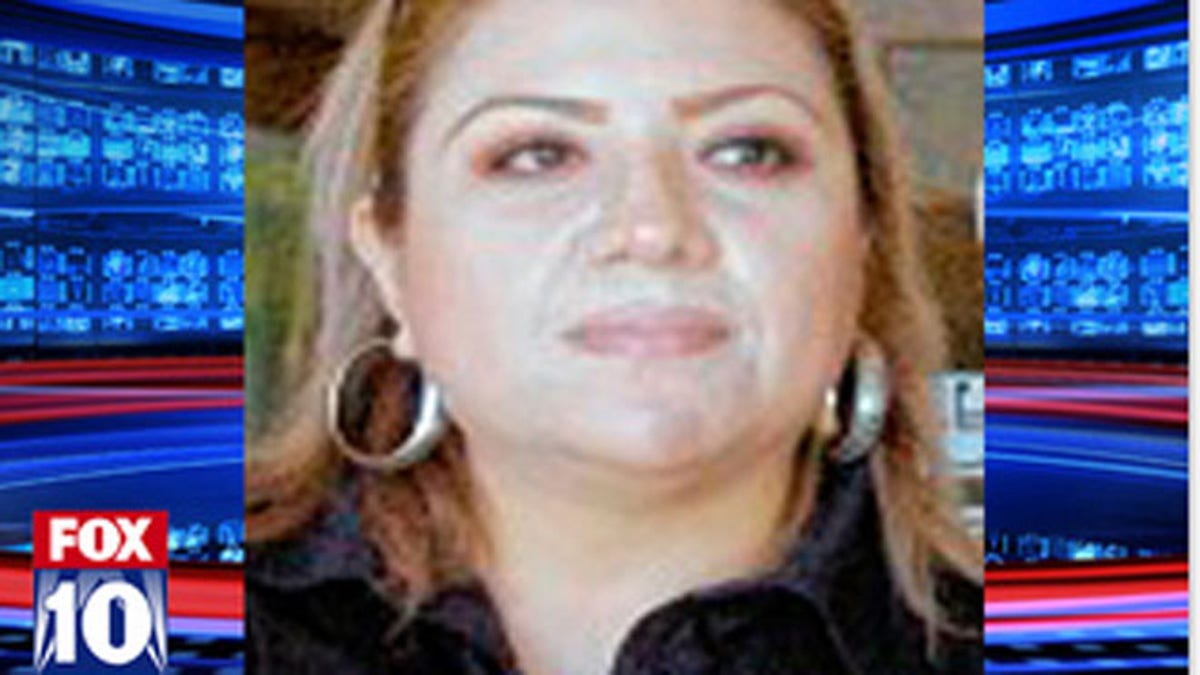
Alejandrina Cabrera (MyFox Phoenix/Courtesy The Yuma Sun)
Questions have been raised in Arizona over a 120-year old law after a Latina candidate was barred from running for city council in a border town because she isn't fluent in English.
While records don't show the exact intent of the old law, state historian Marshall Trimble said that new white settlers who came to Arizona in droves starting in 1890 with the expansion of railroads "were trying to eradicate Spanish."
The Arizona Supreme Court last week upheld a county judge's ruling that removed Alejandrina Cabrera from a March ballot for city council in San Luis, a small city just across the Mexican border in southwestern Arizona.
Cabrera insists her English is good enough for the community's mostly Spanish-speaking constituents. Her attorney says the effort to stop her is politically motivated because she tried twice to recall the mayor.
If left unchallenged, he warned, the law "will become a political tool ... a litmus or intelligence test" that could be "used and abused to the detriment of voters."
In seeking her removal, San Luis Mayor Juan Carlos Escamilla and other city officials cited a 1913 Arizona law that says anyone "who is unable to speak, write and read the English language is not eligible" to hold any kind of public office in the state.
The Associated Press found that the law actually began as a territorial act in 1889, more than two decades before Arizona became a state on Feb. 14, 1912.
Before railroads, Spanish was the preferred language in Arizona. The currency was the Mexican peso. And marriages between white men and Hispanic women were common and accepted, Trimble said.
"Everyone was treated much more equally out here before it was easy to get here and people started bringing their prejudices with them," he explained. "It was white arrogance."
Another territorial act at the time outlawed interracial marriage. It is no longer on the books.
Although 23 states, including Arizona, have laws that declare English to be their official language, Arizona is the only one that requires office-holders to speak the language, said Jon Griffin, a policy associate at the National Conference of State Legislatures in Washington, D.C.
When reached on her cellphone, Cabrera declined to speak to The Associated Press in English without her lawyer present.
In written questions posed to her in Spanish, she wrote back to the AP in English. Although she misspelled several words, her sentiments were clear: She accused the mayor, the Yuma County judge and the Arizona Supreme Court of racism.
The mayor said the council's decision to remove Cabrera from the ballot had nothing to do with race. He and the rest of the city council are all Hispanic and speak both Spanish and English.
Although a Spanish translator is available at all San Luis council meetings for members of the public who don't speak English, all the meetings and associated materials for council members are in English, Escamilla said.
Council members also have to meet with state and federal officials, and English is essential to those meetings, the mayor said.
John Minore, Cabrera's attorney, compared Arizona's 1889 law to Jim Crow laws, which deprived blacks of political rights after Reconstruction.
Celebrities Who Once Were Undocumented
He argues that the wording of the law requires an elected official to speak, read and write English, but it does not establish how proficient that person must be. While Cabrera's English is flawed, he said, she can read, write and speak it.
Minore believes Cabrera was targeted for political reasons.
After the city laid off her husband and 11 others during tough budget times, Cabrera led two unsuccessful recall efforts against Escamilla. Her husband worked a desk job in the city's facilities management department.
Minore said he would like to take the case to the U.S. Supreme Court, but that would require financial help and lawyers with more experience in the nation's highest court.
Escamilla said Cabrera was singled out for removal from the ballot solely because of her language skills.
"I'm not using this as a personal vendetta to attack her," he said. "That's not how I govern. This is just what's best for the community."
Cabrera said that she wanted to run for city council to help her poverty-stricken community by creating more jobs, lowering people's water bills and being approachable to constituents.
In San Luis, the population of 25,500 people is 98.7 percent Hispanic, according to census data released in 2010. Many residents do not speak English.
"Yes, my English is not fluid, but the English I speak is enough for San Luis, AZ, because most of the population speak (sic) Spanish," she wrote.
Cabrera, 34, said she was born in nearby Yuma but grew up in Mexico, where nuns at private schools taught her some English. She returned to the U.S. when she was 17, she said, and graduated from a Yuma high school.
Since 2002, Cabrera said she has been a social activist and taken English, political science and criminal justice classes at a community college.
In ordering her removal from the ballot, the lower court judge cited a report by a socio-linguist expert hired by San Luis to assess Cabrera's English skills. The state Supreme Court issued its ruling without explanation but planned to issue a written opinion within two months.
After giving Cabrera three tests, William Eggington praised her "courage and ambition" but concluded that her English ability was at a survival level and that "she does not yet have sufficient language proficiency to function adequately as an elected city council member."
Yuma County Superior Court Judge John Nelson agreed, saying that Cabrera "failed to comprehend what was being asked" during a court hearing and guessed at answers.
City officials who have not mastered English are not uncommon along the 2,000-mile U.S.-Mexico border. In Socorro, Texas, for example, Mayor Trini López said that he is "not really proficient with English," but that hasn't stopped him from representing his city, just outside of El Paso.
Jobless Mexicana Flight Attendants Pose for Calendar
He said that all the city council members are bilingual and that council members often speak Spanish during meetings for members of the public who don't speak English.
"I'm not a judge or an attorney, but in my personal opinion, if a U.S. citizen has a right to vote, she should have the right to run for office," López said. "It should be up to the voters to decide if she's going to be elected."
Based on reporting by the Associated Press.
Follow us on twitter.com/foxnewslatino
Like us at facebook.com/foxnewslatino




